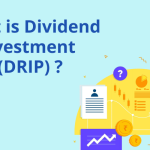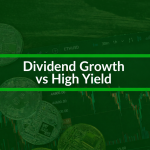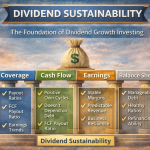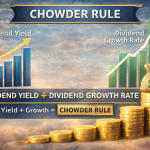
By ATGL
Updated February 8, 2024
Quantitative investment strategies, or ‘quant trading’, involve a sophisticated mix of technology and economic theory. Characterized by incredible speed and constant objectivity, quantitative investment strategies employ intelligent statistical analysis, complex financial models, and various forms of data analytics to predict market movements, place trades, and manage existing open positions.
Originating from the pioneering work of Sam Eisenstadt in 1965, who developed the first quantitative ranking system, these strategies have since been embraced by a broad spectrum of the investment community, including many funds and institutional investors, to outperform traditional stocks and enhance returns. Quantitative investing’s core principle centers on its dependence on data and algorithms as opposed to human intuition.
Top 4 Quantitative Investment Strategies and How They Work
Quantitative investment strategies encompass a rich tapestry of distinctive approaches, each possessing its own distinctive blueprint and merits. Among these methodologies, you’ll find factor investing, statistical arbitrage, machine learning and AI-driven strategies, and risk parity. Each of these strategies involves a unique set of data, models, and algorithms.
Some strategies are engineered with a prolonged investment horizon in mind, while others are finely tuned for nimble short-term maneuvers. The specter of risk mirrors this diversity, with certain quantitative strategies embodying a cautious stance, while others venture into the realm of heightened potential returns and commensurate risks. These quant trading methods have firmly established themselves at the forefront of modern investment practices, garnering growing popularity over the past few decades.
1. Factor Investing
Factor investing, also known as smart beta investing, focuses on harnessing certain ‘factors’ or attributes that are believed to be associated with higher returns. Examples of common factors include value, size, momentum, and quality. This strategy involves creating portfolios that emphasize these factors, based on the hypothesis that they can outperform the market over time.
Unlike traditional investment strategies, factor investing relies on a combination of historical data analysis, human insight, and contemporary quantitative models, which meticulously sift through vast amounts of market information to identify and validate these factors. This process is meant to find correlations between stock performance and various other factors. By doing so, investors can construct portfolios that are fine-tuned to capture these premiums, thereby potentially offering better risk-adjusted returns.
2. Statistical Arbitrage
This strategy hinges on exploiting temporary misalignments in the prices of related financial entities. It entails spotting asset pairs that have historically moved in tandem but are momentarily diverging in value. The tactic involves purchasing the undervalued asset while selling the overvalued counterpart, betting on the prices realigning. Rapid trading is a hallmark of this strategy, which typically uses financial ratios to inform buying and selling decisions.
3. Machine Learning and AI
At the forefront of quantitative investing are artificial intelligence and machine learning. These advanced technologies facilitate the development of models that are capable of self-improvement and can analyze extensive datasets to detect intricate market trends and adjust strategies dynamically. Their proficiency lies in identifying complex, non-linear correlations that traditional statistical approaches may overlook. AI-driven investment strategies often incorporate predictive analytics, sentiment analysis, and anomaly detection, using vast public data and sophisticated machine learning algorithms to optimize investment outcomes.
4. Risk Parity
Risk parity takes a unique stance in investment strategy by evenly spreading risk across various asset types, as opposed to focusing on expected returns for capital allocation. It aims to balance the risk contributions from each asset class in a portfolio to strive for both stability and diversification, particularly in volatile markets. The goal is to consistently improve risk-adjusted returns. For those seeking more directional investments, some risk parity strategies allow for adjusting the overall risk level through leverage.
Excel at Quantitative Strategies With Above the Green Line
Quantitative investment strategies, encompassing factor investing, statistical arbitrage, risk parity, and AI-driven techniques, represent the forefront of modern investment practices. These approaches, rooted in data analytics and intelligent algorithms, offer a strategic edge in today’s dynamic markets and aim to outperform traditional methods.
Above the Green Line’s ETF Sector Rotation Strategy embodies these principles, providing a sophisticated, data-driven approach to investment. This sector rotation strategy, aligning with many core tenets of quantitative investing, offers an opportunity for investors to engage with the market through an informed, guided perspective that helps maximize returns while minimizing risk. Read the full guide on our ETF Sector Rotation Strategy to discover more about our data-driven approach and how it can potentially benefit your investment portfolio.







